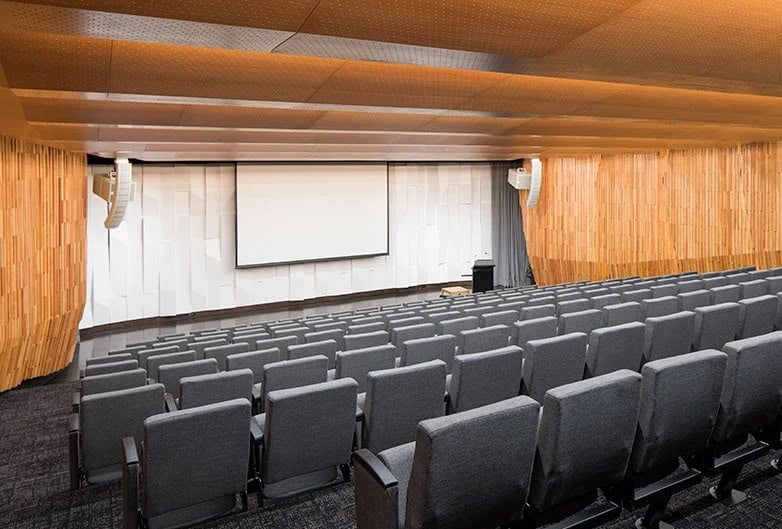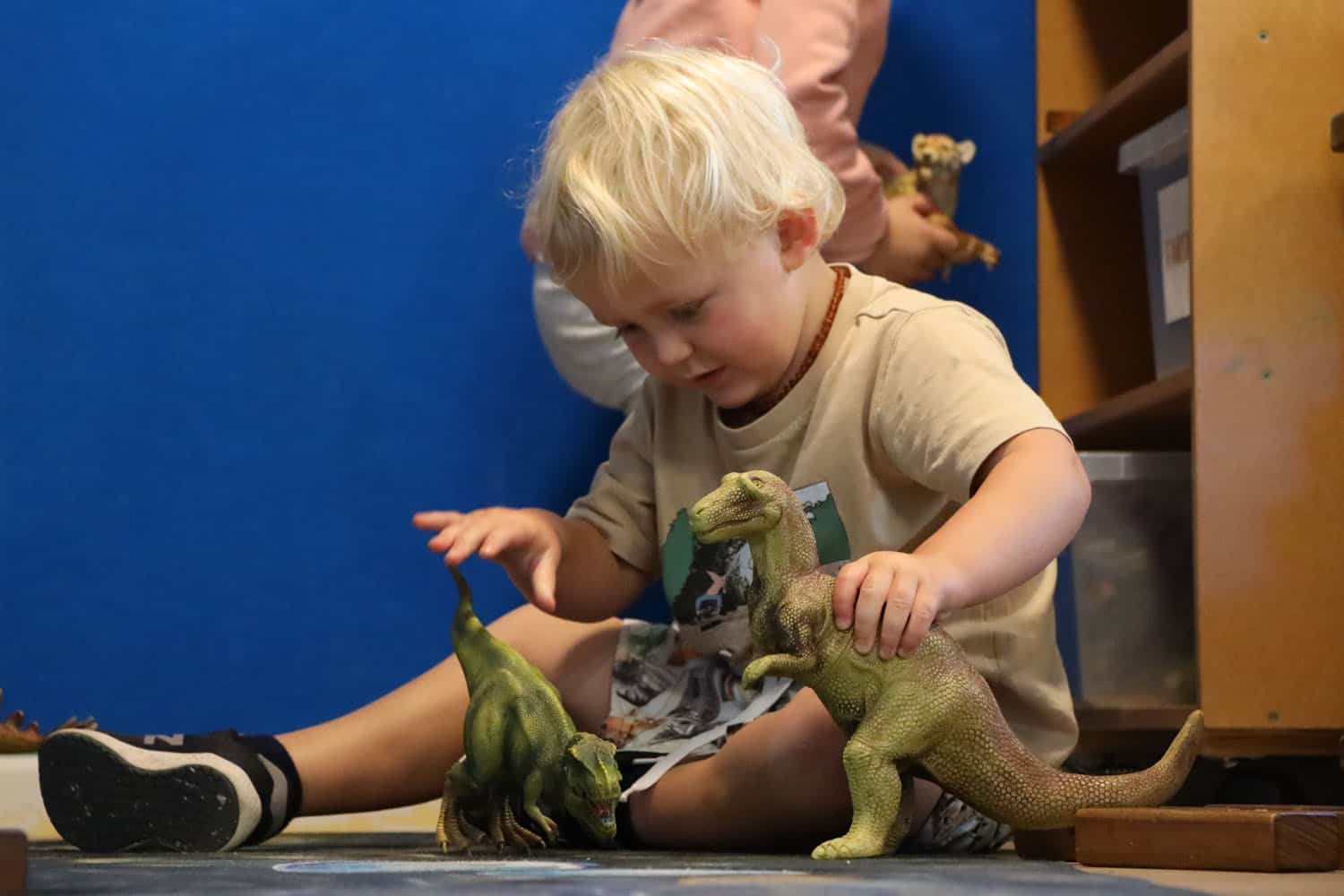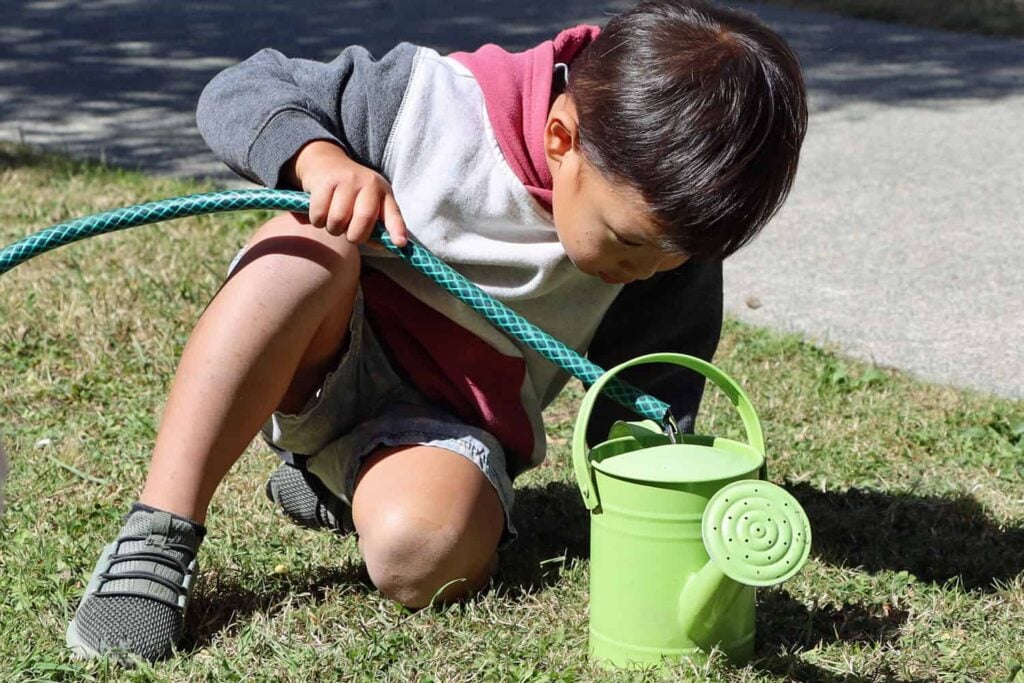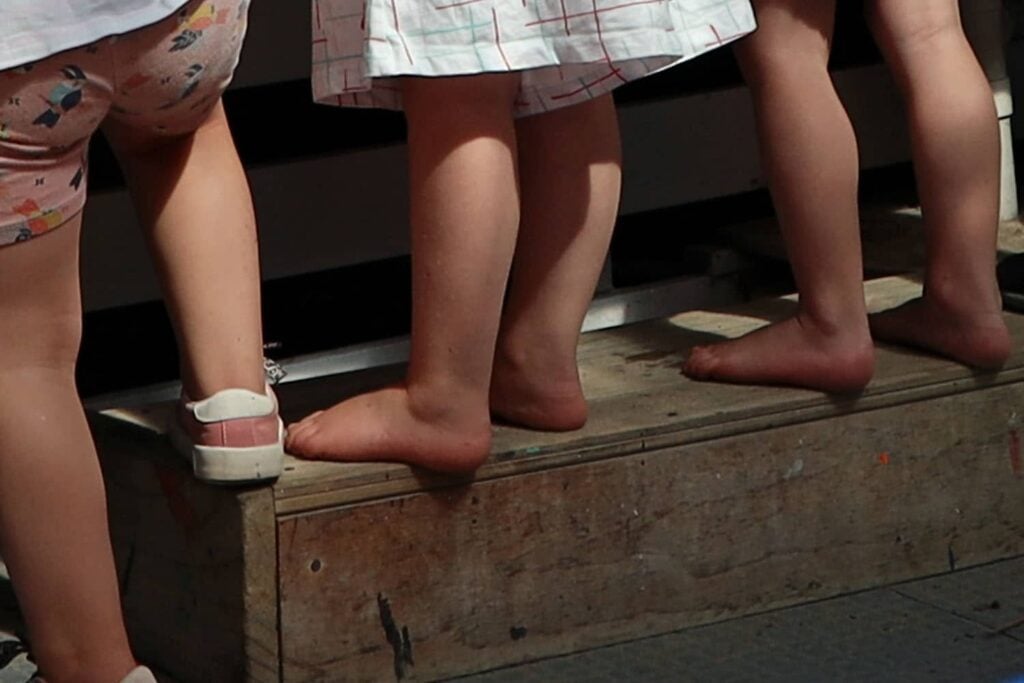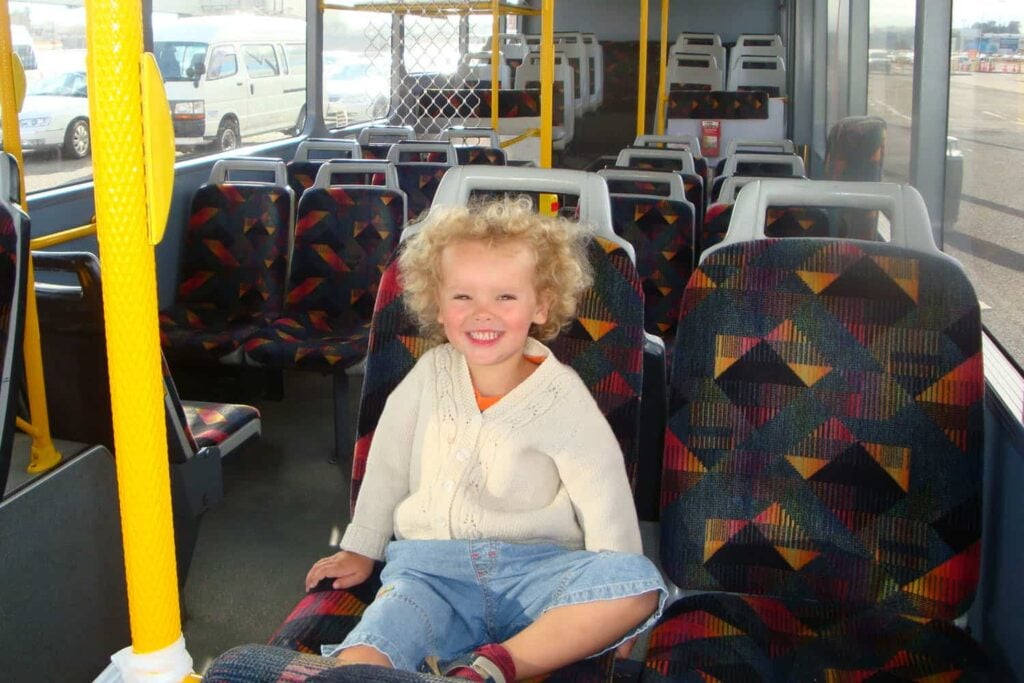A useful glossary with definitions for key words and jargon used in the early childhood field, including in policy and by teaching professionals.
Action research. A hands-on approach to research for change in a setting and/or to one’s own practices, thinking and knowledge. Action research can be a collaborative endeavour or carried out by an individual. When action research is being undertaken to bring about change in a setting, participants in the setting participate in all aspects of the research cycle involving defining what to research, gathering information, analysing, planning for further action, gathering information, critical reflection and possibly further action research cycles. As individuals, practitioners and student teachers may engage in action research (also known as an ‘enquiry’) when the goal is to improve their own learning and practice. It involves working out what you want to improve along with why and how you are going to gather evidence, data collection, problem solving, self-evaluation, critical review and talking about/or writing about (e.g. usually in the form of a report) what has been learnt.
Affective Development. The area of child’s growth that is about personality, emotions, making and changing friends, social skills and the child’s perception of his/her self.
Assimilation. A term used in early childhood theory and proposed by a theorist called Jean Piaget is assimilation. This describes how when a child learns a new idea or concept it is fitted into what they currently know or think.
Assessment – Child Assessment. Information (usually from multiple sources) that is put together and examined and interpreted to make an appraisal of the child or judgment about the child’s development, abilities or needs.
Assessment – Developmental Rating Scale. The child’s performance is compared with a set of developmental norms for children of the same age established through research.
Assessment – Observational. This kind of assessment involves the adult systematically observing the child’s activities, behaviours, language, and level of development to determine what has been learnt, to support the child’s progress, and how to improve teaching and care for the child. A range of observational tools can be used including:
- Running records of everything a child says and does over a set period of time.
- Time sampling by noting what a child is doing at say 10 or 15 minute intervals.
- Flow charts to trace what activities children do and when or who they interact with.
- Duration recording to record the length of children’s activities or behaviours.
- Diary recording also called ‘narrative’ or ‘anecdotal’ recording , to note down the activities of the child that interest the adult. Different people see different things so the diary – like the portfolio (see definition of this) – has different emphases and biases.
Assessment – Portfolio. This takes the form of a collection of the child’s own work, which becomes a method of assessment when examined impartially. The criteria for determining what was put into the portfolio why and by whom must be known and considered, and judgements about the work and next stages in the child’s learning are made by having a set of pre-determined criteria to follow.
Attachment. A long-standing emotionally strong tie between two people. The key signs of attachment between a child and an adult are.
- When you move away the child looks at you.
- The child moves toward you when return after separation.
- The child goes to you when upset, may cling, and finds personal comfort in being with you
- When you are present the child feels safe and begins to gain confidence to look around, explore, and leave your side to play with other children or to explore objects and their environment.
In an early childhood service, children who have attachment relationships with their teachers/carers will accept comfort when they are upset, easily follow directions, approach the teacher for hugs and are playful with the teacher (see also definition for primary caregiving).
Biculturalism. When adults and children practice the language and customs of two different cultural groups. For example an early childhood programme in which adults and children speak both English and Maori equally and value and celebrate rituals and customs of both cultures is bicultural.
Centre. A government licensed and regulated facility for children up to 6 years of age that include: kindergarten, childcare, daycare, crèche, kohanga reo, language nest, Aoga Amata, playcentre, educare, early learning centre, nursery school, Montessori, Rudolf-Steiner, preschool.
Certificated teacher means a qualified teacher who has been granted a practising certificate by the Teaching Council. All qualified teachers, whether primary, early childhood or secondary trained are required by the Teaching Council to meet the same standards and criteria to be awarded and maintain their practising certificate status.
Childcare. A formal or informal childcare arrangement can happen in a home or centre. Childcare means for caring for children while their parents or adult carers are at work, in training, or doing other things.
Co-construction. When an adult or adults and child or children together form their meanings and knowledge. Co-construction is about learning together and acknowledging that the child can have expertise. Co-construction is about the child’s knowledge and understanding being considered and treated as valid by the adult while the adult is willing to share and develop their own thinking.
Cognitive Development. Also known as intellectual development. The word “cognitive” is about the intellectual mind and how it works – how knowledge is learnt and the way knowledge is used.
Development. Physical growth and other changes that occur from conception and across the life span. It’s thought by theorists that we develop as a result of natural maturation or by learning in the environment or as a result of both maturation and learning.
Developmentally Appropriate Practices. Also known as “DAP“. A set of written guidelines published by the American NAEYC association for optimal practices for promoting children’s development that is both age and individually appropriate or suitable for the child.
Early Childhood Education. Early childhood education is a formal arrangement for the care and education of young children. In NZ, early childhood education is provided for babies, toddlers and young children from birth to 5 years (up until their 6th birthday). Early childhood education provides for both learning and teaching to take place. Quality teaching necessitates care and an environment in which children’s social and emotional development and wellbeing matters. Services licensed under the Education (Early Childhood Services) Regulations (2008) are early childhood education and care services. ‘ECE’ also forms a part of the Education and Training Act (2020). Early learning services are not defined in regulations – so the definition for early learning below.
Early Intervention. “A set of services and supports delivered as early as possible to ameliorate or prevent long-term problems. Supports can include the provision of information, referral to other services, such as counselling, assisting parents to access health care and disability support services, establishing parent groups, and other links and services to meet family needs”. See research on early intervention.
Early Learning and Early Learning Service. ‘Early Learning’ is a term that is incorrectly used in policy and in the sector in the place of ‘early childhood education’. It is incorrect because early childhood services are required by law to be educational, and the curriculum that is required to be implemented views children as competent learners (not incompetent or early learners). Note that learning can happen anytime, anyplace, and does not necessarily require teachers. Read more: Early learning must not be allowed to replace Early Childhood Education.
Educare. A composite word made up of education and care popular in New Zealand in the 1980s to claim higher status for childcare centres by describing their purpose as ‘educare’. Also used as an easy short form for the longer term of ‘education and care’ services.
Egocentrism. Not having the ability to see things from another person’s perspective, or not realising that others’ viewpoints can differ from one’s own.
Epistemology. A term used in research to describe theory of ‘what is known’ and ‘how it comes to be known’.
Evaluation. A process of working out the value or worth of something – how good it is – whether it has value – what value it has – what is going wrong and what is going right. Evaluation is often included as the last step in carrying out an assessment.
Giftedness. There are many different definitions of being gifted. The most popular ways of defining giftedness are whether a child shows evidence of advanced ability of skill attainment relative to other children of the same age or whether a child has a particular talent or skill such as in mathematical thinking.
Group size. The number of children grouped together within a centre who interact with the same teacher/s in a specially assigned space or classroom
Guided Participation. The guiding of a young child in helping the child to learn what is needed to be learnt to be part of a group or culture.
Home-based Service. Also known as family daycare and in-home education. A government licensed and regulated agency service matching families up with people who take children into their home. Agencies may provide a weekly or fortnightly playgroup for caregivers/educators and children within an area to meet. In addition some agencies also engage in training and may offer publicly funded training courses for educators.
Inclusion. Traditionally educational inclusion was more narrowly defined than it is today as meaning that all children regardless of gender, size, disability, ability, culture, etc could attend the same early childhood programme or school and not be segregated from same age peers, i.e. mainstreaming. But it is also about membership of the community within the centre or school – being welcomed and included and participating through being accepted to be a part of what everyone else is. In educational settings inclusion is a concept that applies to children and diverse adults including parents and staff.
Infants. Birth to one year old children – sometimes regarded as infants up to 18 months or until the child is walking when a child then is called a toddler.
Intersubjectivity. When two or more people engaged in a task with different understandings of it, come to form a shared understanding as each adjusts to each other’s perspective.
Kaiako. The Ministry of Education’s ECE curriculum document Te Whāriki uses ‘kaiako’ instead of ‘teacher’ and defines a kaiako as any person who has “responsibility for the care and education of children in an ECE setting”. These people may, or may not be, trained, qualified, registered and certificated. This is how ‘kaiako’ is often defined in mainstream pakeha ECE settings. However, in Kōhanga Reo a person is not a kaiako if they do not have a recognised Initial Teacher Education qualification or hold Te Tohu Whakapakari (Level 7 Diploma) and demonstrate understanding in the application of Te Korowai and Te Whāriki ā Te Kōhanga Reo. It is desirable but not required for kaiako to hold L8 Tohu
Kindergarten (free kindergarten) means an early childhood education and care centre controlled by a free kindergarten association. A free kindergarten is an early childhood service whose licence permits no child to attend for a period of more than 4 hours on any day (Education Act, 1989 s348).
Kindergarten Association (free kindergarten association) – this is no longer defined in legislation but is generally a grouping of kindergartens (and may include other forms of ECE services) under an incorporated society or registered company with the name ‘free kindergarten association’ included in its title.
Learning. As a result of influences in the environment, through experiences and people a child’s behaviour, language, knowledge changes.
Learning Dispositions. A term that lacks precision but remains popular with early childhood professionals. It is usually taken to refer to a child’s orientation to learning. In a critical review of the concept Jane Bone (2001) makes the point that “`capturing’ dispositions is not possible, either on paper or in life. In the attempt, early childhood educators might be involved in a process at odds with current ideas of equitable practice” (source: Australian Journal of Early Childhood, June 2001).
Literacy or ‘Emergent literacy’ in early childhood. In early childhood education literacy is so much more than reading and writing, it is also about social participation and communication. Oral language experiences (e.g. encouraging children to express their views, to share thinking, engaging in word play and rhyming and being exposed to new words and concepts) are important to early literacy development. Literacy within early childhood education generally emphasises oral language, reading, alphabet knowledge and letter sounds and shapes, print awareness, mark making or early writing and digital literacies. Literacy is the many systems, codes, symbols for constructing reality and communicating with others.
Licensed early childhood service means a free kindergarten that is an early childhood service whose licence permits no child to attend for a period of more than 4 hours on any day (Education Act, 1989 s348); and any other early childhood service in respect of which the service provider holds a current licence issued under regulations (s317)
Licence size. The total number of children a centre can have on the premises for the purposes of care and education at any one time, or the total number of children a home-based scheme/agency can have across different home-educator sites/homes.
Mainstreaming. Also known as ‘integration’. When children with special learning needs and disabilities are enrolled in the same early childhood programme as other children and have opportunities to do the same activities this is called ‘mainstreaming’.
Metacognition. This is an important term that is not well understood. It means thinking about cognition. Thinking about one’s own mind, one’s knowledge, how it is organised, and what one has learnt.
Methodology. A term used in research to describe a theory of ‘how to do things’. Methodology refers to the whole process of research . Be careful not to confuse it with the term ‘methods’ which describe only the particular techniques to gather the data/information for the study.
Motor Development. Also known as motor skill development is about how a child develops physical skills in using his/her body and body parts.
Motor Skills. There are two broad types of motor skills that young children develop – fine motor skills using the smaller muscles for example doing up buttons on a cardigan – and gross motor skills for example, crawling, climbing and skipping.
Outcomes – Child Outcomes. Changes in a child’s skills, ability, attitudes, behaviour, understanding and knowledge that are expected as a result of attending an early childhood programme or receiving services, or being exposed to particular experiences or equipment/toys.
Parent-Led. A term coined by the New Zealand Ministry of Education to categorise, for funding purposes, services which are run primarily by parents and provide early childhood education training for parents.
Pedagogy. It is all that is involved in teaching and in learning. Therefore it’s about more than just teaching or what the teacher does. The term includes the processes through which the child’s learning is facilitated and the adults assumptions about the nature of the child’s learning.
Peers. Other children who are the same age or may be of the same developmental level. They are not necessarily friends. It’s important for children to have contact with peers for their social learning and developing social skills.
Portfolios. A collection of photos and anecdotal stories about what a child does in childcare typically pasted into a foolscap-sized exercise book. One book may cover a whole year or even two years in the life of a child in an early childhood service as photos and stories are usually, but not always, added spasmodically every couple of weeks or couple of months. Other books may also include a daily description of the child’s activities and go home with the child each day so parents can read about what their child did. In New Zealand it is common to see alongside the photos and anecdotal recordings of activities words such as “belonging”, “contribution” and “exploration” to provide documented evidence for officials to see that children’s activities reflect the programme’s implementation of the curriculum requirements and that they have adopted the language of Te Wharaiki.
Practitioner research. Those who teach/care for children also take a lead role in doing research; they may be supported or mentored by a trained academic researcher. When practitioner research is made available to other practitioners through publication, and it adds to the current research literature then it becomes more than a professional learning exercise and has external credibility as research.
Preschoolers. Children between the ages of 3 and up until 5 or 6 years of age when they start primary school.
Primary Caregiver. This is the parent or adult who takes primary responsibility for the day to day care of the child. In the context of an early childhood centre or home-based education setting this may also mean a child’s special teacher or educator.
Primary Caregiving System. Also known as key teacher or key caregiver system. In early childhood services this term is used to describe a practice whereby a teacher/educator assumes individual responsibility for a child’s care and education, including nappy changing, meals and other routines, observing and planning to meet the child’s needs, getting to know the child’s family and working with the family to ensure the best experiences and the best developmental outcomes for the child.
Provisionally Certificated Teacher. A qualified teacher who has graduated from an early childhood and primary teaching degree or diploma course and has recently applied to the Teaching Council for teacher registration and a practising certificate. To become a fully certificated teacher, a Provisionally Certificated Teacher requires participation in an Induction and Mentoring Programme, taking an additional two years on top of the three or four years of study for a teaching qualification.
Publicly-funded early childhood service means a recognised service (Education Act 1989 s 317) that receives government subsidies for children and/or any operating grants from public funds. Such services include for example, Playcentre, Free Kindergarten and all education and care centres, Nga Kohanga Reo, and Home-based ECE.
Quality Early Childhood Education: Perspectives on Quality
1. Policy Perspective
Quality services are commonly regarded as all services that are licensed with the Ministry of Education and regulated. Services not licensed (under the Education regulations), at least partially funded by government, and reviewed by the Education Review Office are typically treated as falling outside of the definition of quality early childhood education. The definition of quality early childhood education comes down to what settings for the delivery of early childhood education are politically valued most, as the actual quality of informal services in practice for children may be similar to, or better than, some licensed services.
2. Workforce / Professional / Union Perspective
From the perspective of teachers quality early childhood education is defined as services that employ qualified and registered teachers, financially support teachers in their on-going professional learning through course and conference attendance, provide non-contact time for teachers, are well-resourced, and have higher adult-child ratios and smaller group size than the minimum government licensing standards.
3. Child Development Expert Perspective
From the perspective of teacher educators and most researchers who adopt a traditional science view of quality – services vary in quality from high to low quality. Quality is assessed or decided on the basis of ‘structural features’ such as staff qualification level, teacher salaries/wage level, group size, and adult-child ratio, along with ‘process features’ such as activities provided, materials, learning opportunities, and meal-time routines.
4. Child-centered Family-based Perspective
From the perspective of modern researchers, children and families quality is about adding value through providing something better and/or more than what children ordinarily experience at home whilst also providing opportunity to practise practical life skills like washing windows and caring for pets. Quality early childhood education is education that results in higher developmental gains/achievements than if the child did not attend. But it cannot be quality unless children are happy, have laughter, friends, rarely feel bored, feel well-cared for and cared about, have their rights and decision-making ability recognised, and are intellectually and physically stimulated and challenged. Quality is also viewed by parents and families as what they gain or don’t gain by using the service, in other words how well they feel they are supported and whether the service is one that delights them and could be recommended to other parents.
Recognised qualification means in relation to a licensed service that is teacher led, an early childhood teaching qualification recognised by the Teaching Council of Aotearoa New Zealand for registration purposes (namely: Bachelor of Teaching (ECE), Diploma of Teaching (ECE), or an equivalent early childhood teaching qualification).
Sample. In research this term is used to describe what and who is selected for study – what group of people or population, or what types of early childhood services for example.
Scaffolding. Adult or more skilled child support of a child’s efforts. A process of graduated assistance that helps to raise the level at which the child is capable of working.
Service providers. Service providers are individuals, community groups, organisations and companies that own or govern one or more ECE services licensed under the Education (ECE Services) 2008 Act.
Siblings. Brothers and sisters. May include half brothers and sisters.
Socialisation. How younger family or group members become expert members of the family or group they are part of.
Special education teacher. A teacher who provides learning opportunities and programmes for children who have vision, hearing, behavioural difficulties, physical and/or intellectual disabilities, or special learning needs of any kind.
Teacher. Many people are involved in teaching – including parents – but there are specific requirements for recognition as a ‘teacher’. A ‘qualified ECE teacher’ is a person who has completed training in early childhood education and gained a qualification recognised by the NZ Qualifications Authority for the purpose of teaching in an ECE service. A ‘registered teacher’ is a person who holds an early childhood education, primary school, or secondary school teaching qualification and has registered with the Teaching Council as a qualified teacher. A ‘certificated teacher’ is a person who has completed registration with the Teaching Council and holds a practising certificate. Also see above for the definition of kaiako.
Teacher-led service means a service, a centre or home-based service, in which parents are not responsible for their child’s education and the service licence requires the person responsible to be a certificated teacher who holds a recognised teaching qualification. Teacher-led is a term coined by the New Zealand Ministry of Education to separately categorise for funding purposes those services which advertise and employ staff and who do not involve parents as educators/staff.
Teaching position means a position that requires the holder to instruct students or is the professional leader of an early childhood service (Education Act 1989 s 348).
Te Whāriki. Te Whāriki is the national curriculum for all early childhood services, whatever their philosophy, was first published by the Ministry of Education in 1996 and has subsequently been revised. The curriculum document is one that expresses general principles for early childhood education: holistic development, empowerment, family and community, and relationships. It does not require subject teaching and learning in any particular curriculum areas or for teachers to have specialised content or subject knowledge.
Toddler. In research this generally describes a one to three year old child. However in practice the descriptor of ‘toddler’ is often applied to an infant who begins to walk independently. This may be at 10 months or at 18 months for example.
Whanau. Means ‘family’ and includes extended family members who may, or may not, be blood relations.
Zone of Proximal Development. The difference between what a child can do by him/her self and what the child can do with guidance or help from a more expert child or adult.
